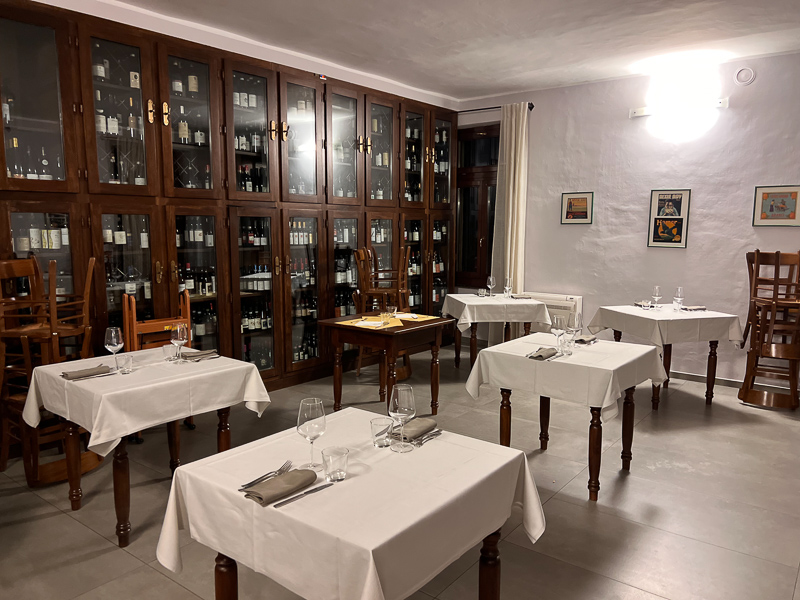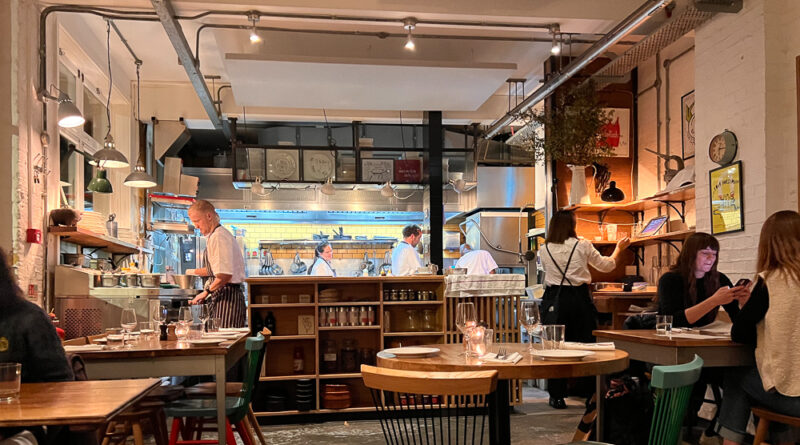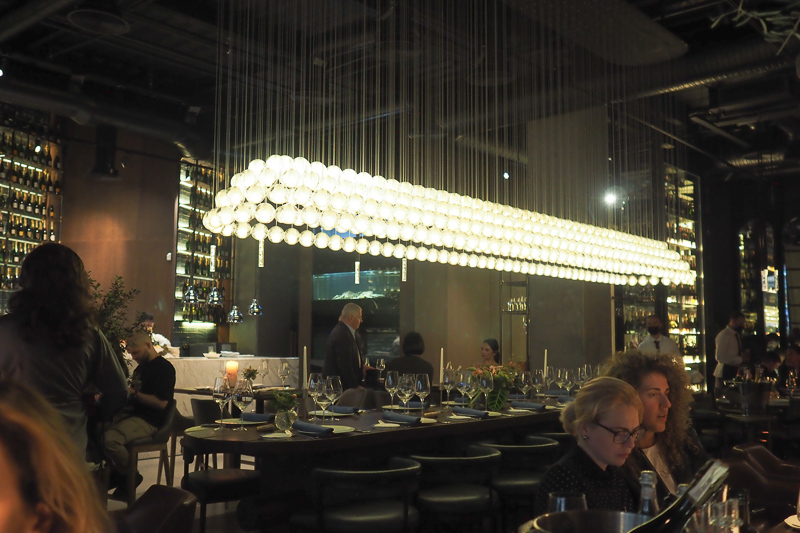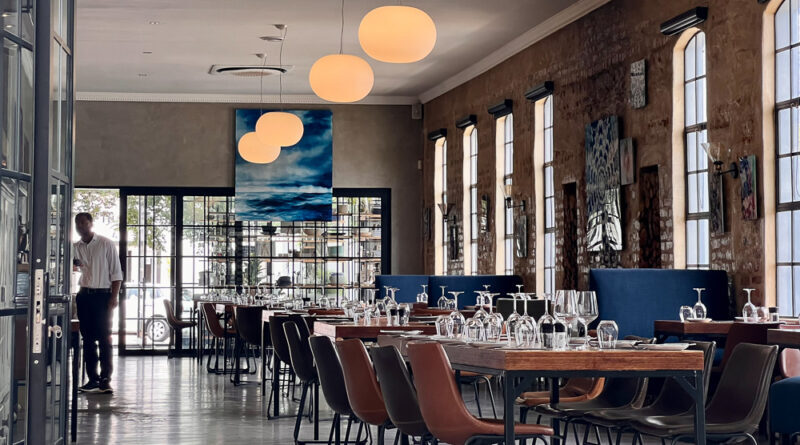On corkage: should restaurants let you bring your own bottles, and if so, how much should they charge?
Restaurants hardly ever cellar wine these days (it’s far too expensive for most, although there are some noble exceptions). But those of us who cellar wines have some gems that we’d love to drink with amazing food. Often, we’d like to share these wines with others. In both cases, it’s unlikely our domestic kitchens and cooking abilities will do justice to these wines and provide the right forum for enjoying them with others.
For these reasons, being able to pay corkage and drink our own wine at a top restaurant is highly desirable. If you want to enjoy mature fine wine with exquisite food, then it helps to know some restaurants that are corkage friendly.
But this can be a fraught area. On the part of the customer, corkage should be seen as a privilege, not a right. And the customer should be prepared to pay enough that the restaurant isn’t losing out. On the part of the restaurant, there needs to be less fear about lost revenue.
There’s some psychology at play here. If someone is drinking mature classed growth Bordeaux in your restaurant and paying £30 corkage for a wine that you might (if you had it on your list) be selling for £450 and making £350 profit, you are not losing £350 in revenue. That’s the wrong way to be looking at it. You might instead be turning a decent customer with a deep cellar into a regular, and you’ll be making the same off that table as you would for most people who spend £40-50 on a bottle of wine. Of course, restaurants like to have some rich-person-bait on their menu. Their fear is that if they offer corkage these rich folk might instead bring their own wines. But it’s not realistic to assume that someone who has fine wine cellared would necessarily drop serious cash on super-fancy bottles in a restaurant setting, particularly if they bought the wine a decade or two ago when fancy bottles weren’t so fancily priced.

One of the problems with corkage is the sense of entitlement that some diners have. They can’t see things from the restaurateur’s perspective. If someone is taking a table, the restaurant needs to make a certain amount from that table to make a profit. Most diners will be ordering wine to go with their food, and this is a significant slice of the bill. Especially when you consider that now in London you must add 12.5% to the price of the bottle, because this is a gratuity that’s automatically added on virtually everywhere (of course, in the USA, gratuities start at c. 18% and go up from there). To expect to bring your own wine and pay zero or minimal corkage is unfair on the restaurant. The restaurant model in the UK relies on drink sales (and by this, we mean wine, principally) to make a profit.
As a general rule of thumb, I think it’s questionable to bring your own wine to a restaurant unless there’s a good reason. It has to be the sort of bottle that the restaurant doesn’t have: something old, or something rare. It has to be a certain level of wine. It’s questionable to see corkage as a way of saving you money off the bill. If the restaurant has put together an interesting wine list, then you should really buy off the list. I sometimes go to wine nut lunches where we bring our own wine, but we bring fancy, rare bottles and we choose a time when the restaurant isn’t going to be too busy. It has to work for everyone.

There’s a difference between a fine dining restaurant and a neighbourhood bistro. In the first, bringing your own bottle(s) creates work for the wine team: they need to open the bottle, taste it, and serve it in appropriate glassware. If multiple bottles are bought, this ends up creating a lot of work for the team when they are already busy with normal service. For a (true) neighbourhood bistro without a sommelier, the wine is simply opened and poured and it’s less of an imposition. So in the first case, a much higher corkage fee is justified. In the latter, it should be more moderate.
There’s a difference to bringing a wine to a restaurant with a short, not particularly interesting wine list, and bringing a wine to a place with a broad, carefully curated wine list of good bottles. In the former instance you bring the bottle because you want something good to drink. In the latter, you really should only bring a bottle because it’s the sort of wine that isn’t represented on the list: it might be a very old wine that you have cellared for a while, or a rare bottle, or a bottle special to you for some sentimental reason (but this would be a rare occasion). It is bad form to bring a bottle so that you can drink something decent without paying the going rate. Corkage should not be about saving money.
As a courtesy, anyone bringing a bottle and paying corkage might consider ordering off the list too. Again, it is making clear that the use of this privilege is in order to allow diners to drink the sort of wine that isn’t on the list.

One reason corkage might be asked for is if a group of wine lovers want to do a dinner where they each bring a bottle. In this case, perhaps the restaurant should agree on the basis that they don’t expect a new glass for each wine, and are happy to open the bottles themselves and pour themselves. This takes the stress off the restaurant a bit: even if it is a fancy place, for a group like this they can relax on the wine service front if it’s going to cause them stress. If the sommelier team aren’t opening and tasting the bottle, it’s nice to leave a little in each for them to try later.
None of us likes to go into a restaurant knowing that the establishment sees us as a way to generate profit. That completely ruins the dynamic. We know, rationally, that the restaurant must make some money from us. But we go in there as guests, expecting to receive hospitality. We pay for it, but we are glad to pay a professional for their skill in feeding us with delicious food, and we’re less keen if it feels like someone has tried to wring as much cash out of us as possible. So elaborate corkage policies of the sort that I’ve seen recently where the cost is based on the market value of the bottle are out. And justifying complicated or expensive corkage policies by referring to the cost of running a restaurant and how many staff you have breaks the fourth wall a bit and takes the magic out of eating out. Don’t do it.
If I was running a restaurant, my corkage policy would be thus:
You can probably bring your own bottle for a £30 corkage charge. I say ‘probably’ because if you bring a cheap bottle as a means of saving money, then we won’t let you open it. The justification for corkage is your possession of a special bottle that isn’t the sort of thing we have on our list. So if you turn up with a decent bottle, and you are a good human (this means, you are nice to our staff and don’t make unreasonable demands) then we’ll let you open it. If you order something from our list, too, this will generally swing things in your favour.




